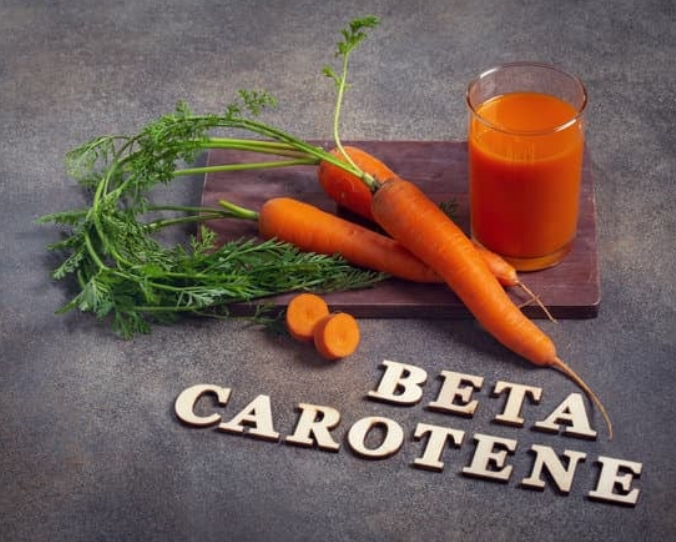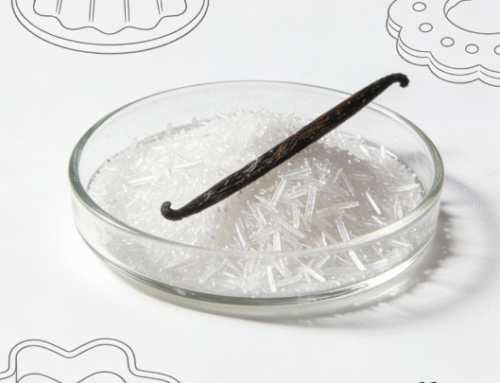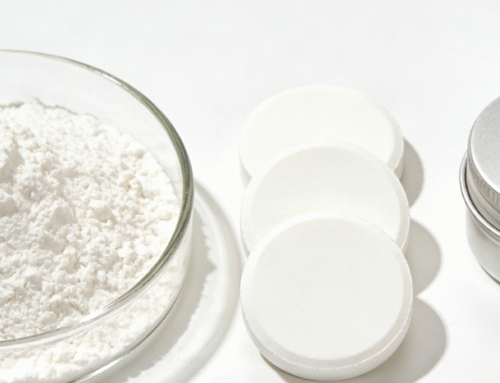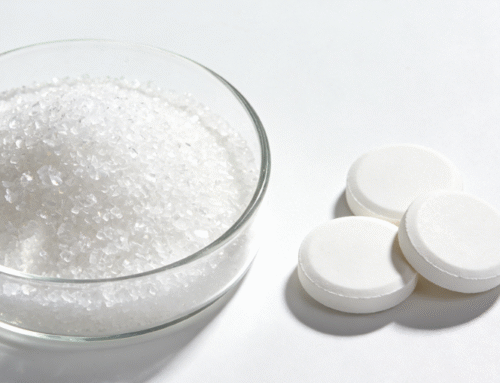Beta carotene is a red-orange pigment found abundantly in various plants and fruits, particularly in carrots, sweet potatoes, and leafy greens. This powerful carotenoid is not just responsible for the vibrant colors of these foods but also plays a crucial role in human health by converting into vitamin A in the body. In this comprehensive guide, we’ll delve into everything you need to know about beta carotene, its benefits, food sources, and how it can enhance your products in the health and wellness sector.
What is Beta Carotene?
Beta carotene is classified as a carotenoid, which is a type of antioxidant that protects the body from free radicals—unstable molecules that can damage cells and contribute to chronic diseases. The name “beta carotene” originates from the Greek word “beta” and the Latin word “carota,” meaning carrot. Discovered in 1831 by H. Wachenroder, beta carotene has been studied extensively for its health benefits.
The human body converts beta carotene into vitamin A (retinol), which is vital for numerous bodily functions, including maintaining healthy skin, vision, and immune function. Unlike vitamin A obtained directly from animal sources, beta carotene is not toxic in high amounts because the body only converts what it needs, making it a safer alternative.

Fast Facts on Beta Carotene
- Source: Found in many fruits and vegetables.
- Conversion: The body converts beta carotene into vitamin A.
- Antioxidant Properties: Helps combat oxidative stress.
- Health Risks: High supplement intake may pose health risks for smokers.
- Dietary Benefits: Consuming a diet rich in beta carotene can reduce the risk of certain diseases.
Health Benefits of Beta Carotene
1. Antioxidant Protection
Beta carotene is a potent antioxidant that plays a critical role in neutralizing free radicals in the body. This action helps prevent oxidative stress, which is linked to various chronic diseases, including heart disease and cancer. Numerous studies suggest that a diet rich in beta carotene can lower the risk of these illnesses, emphasizing its importance in a balanced diet.
2. Vision and Eye Health
Vitamin A, derived from beta carotene, is crucial for maintaining good vision, especially in low-light conditions. It supports the health of the retina and helps prevent age-related macular degeneration (AMD), a leading cause of blindness in older adults. Regular consumption of beta carotene-rich foods can contribute to long-term eye health.
3. Immune System Support
A strong immune system is essential for combating infections and diseases. Beta carotene contributes to immune function by promoting the production and activity of white blood cells, which are vital for immune defense. This antioxidant also supports the health of the skin and mucous membranes, serving as the body’s first line of defense against pathogens.
4. Cognitive Health
Emerging research indicates that beta carotene may play a role in slowing cognitive decline. A study published by Harvard Medical School highlighted that men taking beta carotene supplements over a long duration experienced less cognitive decline compared to those who did not. The antioxidant properties of beta carotene may help mitigate oxidative stress, a key factor in cognitive deterioration.
5. Healthy Skin
Beta carotene is often touted for its skin benefits. Its antioxidant properties help protect the skin from oxidative damage caused by UV exposure and environmental pollutants. Additionally, beta carotene can promote a healthy complexion, providing a natural glow when consumed in adequate amounts.
Food Sources of Beta Carotene
To harness the benefits of beta carotene, incorporating a variety of colorful fruits and vegetables into your diet is essential. Here are some of the top sources:
- Carrots: A well-known source, carrots are versatile and can be enjoyed raw, cooked, or juiced.
- Sweet Potatoes: Packed with beta carotene, sweet potatoes can be roasted, mashed, or added to soups.
- Kale: This leafy green is not only rich in beta carotene but also provides a wealth of other nutrients.
- Spinach: Another leafy green, spinach is a great addition to salads and smoothies.
- Pumpkin: Whether in pies or soups, pumpkin is a delicious way to increase your beta carotene intake.
- Butternut Squash: This versatile squash can be roasted, pureed, or added to casseroles.
- Mangoes and Apricots: These fruits are not only delicious but also rich in beta carotene.

Risks and Considerations
While beta carotene from food sources is safe and beneficial, supplements can pose risks, particularly for smokers. Studies have shown that high doses of beta carotene supplements may increase the risk of lung cancer in smokers, highlighting the importance of obtaining nutrients from whole foods rather than supplements.
Additionally, some individuals may experience a condition known as carotenemia, where the skin may turn yellow-orange due to excessive intake of beta carotene-rich foods. This is generally harmless and reversible by reducing consumption.
Drug Interactions
Beta carotene can interact with certain medications, potentially affecting their efficacy. For instance, cholesterol-lowering medications and orlistat may reduce the absorption of beta carotene. It’s essential to consult with a healthcare provider before starting any supplements, especially if you are on medication.
Conclusion
Incorporating beta carotene into your diet through a variety of colorful fruits and vegetables can lead to significant health benefits, from enhanced immune function to better eye health. For businesses in the health and wellness sector, understanding the role of beta carotene can help in formulating products that meet consumer demands for natural, beneficial ingredients.
If you’re interested in sourcing high-quality beta carotene for your products or have any inquiries about our offerings, we’re here to help! Contact us today to explore how our premium ingredients can elevate your formulations. Don’t miss the opportunity to enhance your products with the power of beta carotene—reach out now for a consultation!





Leave A Comment